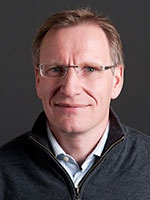
Lars Angenent
Adjunct Professor
Department of Biological and Environmental Engineering
Cornell University
Angenent was one of the initiators of the Cornell Pyrolysis Facility when he was a faculty member in the department of Biological and Environmental Engineering at Cornell University. Even though Angenent has moved to Germany to setup a new Environmental Biotechnology Group at the University of Tübingen, he remains committed to work actively with the Cornell Pyrolysis Facility to clean and convert pyrolysis gas into the household fuel ethanol by integrating a biological syngas fermentation system. Angenent and his team in Germany are currently optimizing syngas fermentation for pyrolysis gas conversion. Hr id sldo training people who can run the pilot-scale syngas fermentation system to be situated next to the Cornell Pyrolysis Facility.
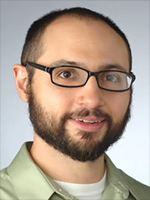
Jesse Bond
Sustainable Energy Studies Assistant Professor
Biomedical & Chemical Engineering
Syracuse University
Bond’s research group is focused on the design and application of catalytic materials for improving sustainability in the production of transportation fuels and chemical products. His group leverages heterogeneous catalysis to facilitate the conversion of renewable feedstocks to drop-in replacements for traditional, petroleum-derived fuels. They approach this task mindful of the guiding principles of environmental stewardship and thus promote total biomass utilization, energy efficiency and conservation, and waste minimization while striving to advance the state of the art in renewable energy.
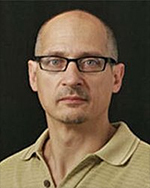
Jack Elliott
Associate Professor
Department of Design and Environmental Analysis
College of Human Ecology
Cornell University
Elliot is interested in “pulling” technology through the physical project situated in a real world context. He uses the prototype as a stimulant for design discourse, a conductor for technological developments, and an exemplar for commercial enterprise. These prototypes range in scale from the artifact to the edifice; from a pair of benches installed on the National Mall in Washington D.C. to a bamboo space-framed outdoor classroom in the Dominican Republic. He is also interested in material science research and has been investigating the effects of carbon sequestration on the structural strength of concrete.
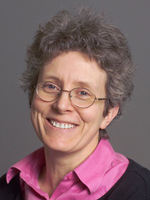
Elizabeth Fisher
Associate Professor
Sibley School of Mechanical and Aerospace Engineering
Cornell University
Fisher uses bench-scale experiments and numerical simulations to investigate the combustion chemistry of various practical systems. Focus is on understanding the chemical kinetic mechanisms relevant to the formation of desired products as well as pollutants. Applications include: biomass combustion and pyrolysis to produce fuels, biochar, and heat; clean cookstove design; flame inhibition; combustion of practical liquid fuels including biodiesel and jet fuel; oxycombustion for carbon sequestration; incineration of hazardous wastes and chemical warfare agents.
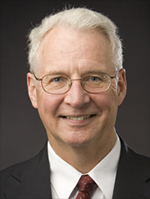
Ken Hover
Professor
Department of Civil and Environmental Engineering
Cornell University
Hover has been working with Jack Elliott in Design and Environmental Analysis on blending bio-char into mortar and concrete materials, with the dual objectives of obtaining strength and durability while at the same time locking-up the CO2.
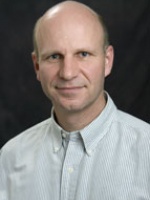
Johannes Lehmann
Professor
Soil and Crop Sciences Section, School of Integrative Plant Science
Cornell University
Lehmann is interested in advancing our general understanding of biogeochemical cycles of carbon and nutrient elements in soil, providing important insight into regional and global element cycles such as the carbon cycle. This field of research has global and local relevance with implications for climate change and environmental pollution.
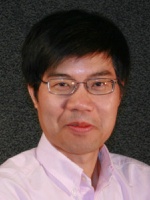
Xingen Lei
Professor
Department of Animal Science
Cornell University
Lei addresses global food and nutrition security, along with exploring new biofuel sources.
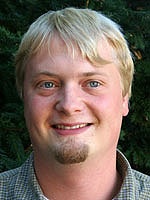
Neil S. Mattson
Associate Professor
Horticulture Section, School of Integrative Plant Science
Cornell University
Mattson seeks to understand the influence of environmental factors and cultural practices on the physiology, development, and biochemical characteristics of greenhouse crops. Of particular focus is the influence of water quality and nutrient availability, temperature, light, and abiotic stress conditions on the physiology and of herbaceous plants. His extension goal is to provide producers with relevant, research-based information for the production of high quality greenhouse vegetable and flower crops using nutrients, water, and energy efficiently.
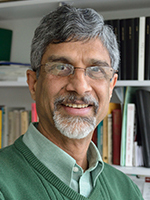
Anil Netravali
Jean & Douglas McLean Professor
Fiber Science and Apparel Design
College of Human Ecology
Cornell University
Netravali’s main research areas are Fiber Reinforced Composites and Green Materials and Processes. In composites, the primary focus of his research group is to develop sustainable and environment-friendly thermoset resins from plant-based proteins and starches and to fabricate Green Composites using a variety of reinforcements as replacements for petroleum based composites.
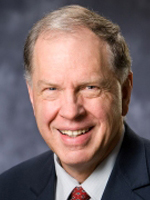
Jeff Tester
Croll Professor of Sustainable Energy Systems
Department of Chemical and Biomolecular Engineering
Cornell University
Tester founded the Cornell Energy Systems Institute in 2009 and served as its director until 2018. He is currently the principal scientist for Cornell’s Earth Source Heat Project. His research is focused on chemical and phase reactions and transport in hydrothermal and supercritical media with applications in three main areas: treatment of biomass feedstocks to recover energy and nutrients using anaerobic, pyrolysis and hydrothermal processing, geothermal energy recovery and utilization, and thermal energy storage. Current collaborations with Johannes Lehmann, Fengqi You, Xoingen Lei , and Curt Gooch involve, experimental testing of hydrothermal liquefaction and gasification reaction pathways and kinetics, molecular simulations of thermochemical reactions, and energy systems analysis including full lifecycle and technoeconomic assessments.
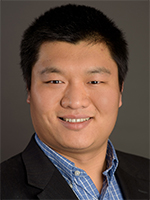
Fengqi You
Roxanne E. and Michael J. Zak Professor and David Croll Sesquicentennial Faculty Fellow
School of Chemical and Biomolecular Engineering
Cornell University
You’s research lies at the interface between chemical engineering and operations research, specifically focusing on the development of advanced computational models, optimization algorithms, and systems analysis tools for practically important and fundamental problems on process engineering/manufacturing, energy systems and sustainability. He seeks to provide a balance between theory, computation and real world applications through synergistic research that includes both fundamentals and applications.


